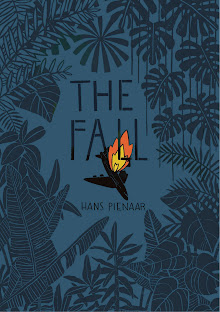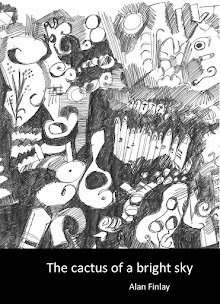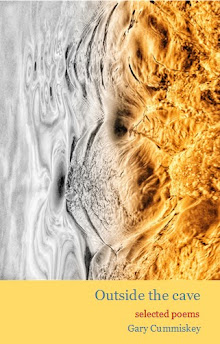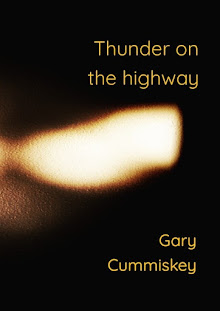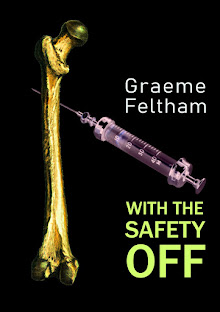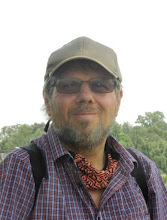“There is in all poetry an essential contradiction. Poetry is pulverised multiplicity and it produces flames. And poetry, which restores order, first revives disorder, disorder with semblances ablaze; it causes appearances to clash in restoring them to a singular point: fire, gesture, blood, cry.
“To restore poetry and order to a world whose very existence is a threat to order, is to bring back war and the permanence of war; it is to bring in an enforced state of cruelty, to arouse a nameless anarchy, anarchy of things and appearances which awaken before sinking anew and melting into unity.”
Antonin Artaud, Heliogabalus or, The Anarchist Crowned
Monday, 29 October 2007
Wednesday, 17 October 2007
Handsome Jita

Handsome Jita is the latest collection of poems by Vonani Bila, editor of Timbila poetry journal and of the Timbila Poetry Project. A selection from his previous collections, its 100 pages contain works by one of the most powerful voices in contemporary South African poetry. An uncompromising social and political critic, Bila takes up the cause of the poor and downtrodden against the rich and the powerful. He speaks out against corruption and abuse of power and courageously exposes "the inconventient truths" of the "new South Africa".
Vonani's previous collections of poetry include No Free Sleeping (with Donald Parenzee and Alan Finlay), In the Name of Amandla and Magicstan Fires.
Vonani's previous collections of poetry include No Free Sleeping (with Donald Parenzee and Alan Finlay), In the Name of Amandla and Magicstan Fires.
Handsome Jita is published by University of KwaZulu-Natal Press, ISBN: 978-1-86914-126-4
Labels:
Handsome Jita,
poetry,
Vonani Bila
Tuesday, 16 October 2007
Little Prajna
One day, little Prajna rolled her parents' drum down the garden path. When the drum came to a stop, it changed into a pagoda. The fact that she was Indian and a pagoda was Japanese did not disturb Prajna; she was determined to make it her home.
When her parents came home that night, Prajna could not be found. The drum that they had forbidden her to roll had disappeared.
At the bottom of the garden was a pagoda.
When her parents came home that night, Prajna could not be found. The drum that they had forbidden her to roll had disappeared.
At the bottom of the garden was a pagoda.
Thursday, 11 October 2007
An encounter with Wopko Jensma
It was late 1991 when a friend drew my attention to an article in Penthouse about white tramps in South Africa. Among the list of outies was “a promising young poet”, whom I was astonished to discover was Wopko Jensma. According to the article, Jensma had walked out on society, become a tramp, and was living in the Salvation Army Men’s Home in Johannesburg.
That evening, I telephoned the Salvation Army and made an appointment to see Wopko the next Saturday morning. Visiting the Men’s Home was an experience in itself. Outside the gates, a red-faced outie stood clutching a radio: the expression on his face was one of dissolution and loss. Inside, another outie sat on the steps, his head in his hands.
I went in by the side-entrance, and found myself in the kitchen. I introduced myself to the kitchen supervisor who, after shaking hands, said: “Oh yes, we told Wopko to expect you.” He suggested I wait in the TV room. After about five minutes the supervisor returned with a tall, grey-haired man, in an orange shirt, with a blue jacket and trousers. Despite his height, the man seemed unassuming, an anonymous face in the crowd. The supervisor introduced us: “Here’s your visitor, Wopko!”
As we shook hands I noticed his hands were large but soft. His eyes also had a soft, moist expression. When I started telling Wopko that I admired his poetry, he looked frightened for a moment, and rubbed his hands nervously. He started talking about how he had just returned from Swaziland, where he had been working as a mechanic. At first I thought there had been a mix-up, and that this wasn’t Wopko. Before I could say anything, however, he had taken items out of a plastic bag: a Bosal Africa catalogue, an empty coffee tin, some old magazines. He pointed to the bar code on the coffee tin and said: “That’s a good poem.”
I decided to press for some biographical information. He was born in Middelburg, in the Cape, wasn’t he?
Yes, he had spent his childhood there.
And he studied at the University of Potchefstroom?
Only for a year, and then he decided to study Fine Arts at the Pretoria Technikon. The only thing he remembered about Potch was taking a trip to Durban and buying a large tin of pineapples, which he sent back to his parents. When his father opened the tin, the fruit was rotten.
Hadn’t he lived in Mozambique for a spell?
Yes, but only for a very short while, but that was long ago, back in the sixties.
And his work in Botswana?
Yes, he worked as an artist for the department of information.
And what sort of writing did he do in Botswana?
It was here that Wopko made another illogical statement. In answer, he spoke about a little boy who used to siphon petrol from cars and then sell it in order to get money to go to bioscope.
He had published only three collections of poetry, was that correct?
Yes, there were only three. His job kept him so busy that he was unable to produce much work.
I asked him which jazz musicians he liked.
“Don’t speak to me about poetry,” he replied. “Speak to Lionel Abrahams.”
Next Wopko took up the Bosal catalogue and started leafing through it. He pointed to a key diagram of some implement: this, he told me, was a wonderful poem.
Then he pointed to a photograph of a pulley: this was an instrument used to drop crates on people walking the street. Looking at another photograph, of a high-powered drill, Wopko said it was a torture machine designed by Hitler.
By this time I was beginning to feel uneasy, when Wopko himself broke the spell by saying that he had to go now, or else he would miss tea. As he started walking off, I said it had been a privilege to meet him, and asked if I could visit him again.
No, he said, he didn’t like visitors. Then he laughed, and walked back to his room.
i don’t want that suburban house
i don’t want a second car
a swimming pool a lawn a boring Sunday
no, none of that
i am tired, so very tired
tired of the hate stare
tired of broken telephones
tired of non-white entrances
tired of being a burden
i am tired, tired of hating
i don’t want the soothing colours
Of tv. the news and drink some more
to wash me clean
no, please none of that
(Wopko Jensma, from I Must Show You My Clippings, 1977, Raven Press)
Note: Wopko Jensma disappeared from the Men’s Home in 1994. Nobody has heard of him since.
Originally published in Imprint, Summer 1995
That evening, I telephoned the Salvation Army and made an appointment to see Wopko the next Saturday morning. Visiting the Men’s Home was an experience in itself. Outside the gates, a red-faced outie stood clutching a radio: the expression on his face was one of dissolution and loss. Inside, another outie sat on the steps, his head in his hands.
I went in by the side-entrance, and found myself in the kitchen. I introduced myself to the kitchen supervisor who, after shaking hands, said: “Oh yes, we told Wopko to expect you.” He suggested I wait in the TV room. After about five minutes the supervisor returned with a tall, grey-haired man, in an orange shirt, with a blue jacket and trousers. Despite his height, the man seemed unassuming, an anonymous face in the crowd. The supervisor introduced us: “Here’s your visitor, Wopko!”
As we shook hands I noticed his hands were large but soft. His eyes also had a soft, moist expression. When I started telling Wopko that I admired his poetry, he looked frightened for a moment, and rubbed his hands nervously. He started talking about how he had just returned from Swaziland, where he had been working as a mechanic. At first I thought there had been a mix-up, and that this wasn’t Wopko. Before I could say anything, however, he had taken items out of a plastic bag: a Bosal Africa catalogue, an empty coffee tin, some old magazines. He pointed to the bar code on the coffee tin and said: “That’s a good poem.”
I decided to press for some biographical information. He was born in Middelburg, in the Cape, wasn’t he?
Yes, he had spent his childhood there.
And he studied at the University of Potchefstroom?
Only for a year, and then he decided to study Fine Arts at the Pretoria Technikon. The only thing he remembered about Potch was taking a trip to Durban and buying a large tin of pineapples, which he sent back to his parents. When his father opened the tin, the fruit was rotten.
Hadn’t he lived in Mozambique for a spell?
Yes, but only for a very short while, but that was long ago, back in the sixties.
And his work in Botswana?
Yes, he worked as an artist for the department of information.
And what sort of writing did he do in Botswana?
It was here that Wopko made another illogical statement. In answer, he spoke about a little boy who used to siphon petrol from cars and then sell it in order to get money to go to bioscope.
He had published only three collections of poetry, was that correct?
Yes, there were only three. His job kept him so busy that he was unable to produce much work.
I asked him which jazz musicians he liked.
“Don’t speak to me about poetry,” he replied. “Speak to Lionel Abrahams.”
Next Wopko took up the Bosal catalogue and started leafing through it. He pointed to a key diagram of some implement: this, he told me, was a wonderful poem.
Then he pointed to a photograph of a pulley: this was an instrument used to drop crates on people walking the street. Looking at another photograph, of a high-powered drill, Wopko said it was a torture machine designed by Hitler.
By this time I was beginning to feel uneasy, when Wopko himself broke the spell by saying that he had to go now, or else he would miss tea. As he started walking off, I said it had been a privilege to meet him, and asked if I could visit him again.
No, he said, he didn’t like visitors. Then he laughed, and walked back to his room.
i don’t want that suburban house
i don’t want a second car
a swimming pool a lawn a boring Sunday
no, none of that
i am tired, so very tired
tired of the hate stare
tired of broken telephones
tired of non-white entrances
tired of being a burden
i am tired, tired of hating
i don’t want the soothing colours
Of tv. the news and drink some more
to wash me clean
no, please none of that
(Wopko Jensma, from I Must Show You My Clippings, 1977, Raven Press)
Note: Wopko Jensma disappeared from the Men’s Home in 1994. Nobody has heard of him since.
Originally published in Imprint, Summer 1995
Labels:
Gary Cummiskey,
poetry,
Wopko Jensma
Wednesday, 10 October 2007
Voodoo
My registration plate is Voodoo
The parking attendant is Voodoo
The sun is Voodoo
McDonald's is supersized Voodoo
Harry Potter stoned on tik is Voodoo
Sweating it out at gym is Voodoo
The newspapers are Voodoo
Radio screaming at dawn is Voodoo
My sleep is Voodoo
The parking attendant is Voodoo
The sun is Voodoo
McDonald's is supersized Voodoo
Harry Potter stoned on tik is Voodoo
Sweating it out at gym is Voodoo
The newspapers are Voodoo
Radio screaming at dawn is Voodoo
My sleep is Voodoo
Saturday, 06 October 2007
Scratching at the door
"At the clinic, at five o'clock, the old bull-dog who is dying is given a fatal injection of morphine. One hour later he is playing in the garden, jumping and rolling about. The following day, at five, he scratched at the doctor's door and asked for his injection."
Jean Cocteau, Opium
Jean Cocteau, Opium
Thursday, 04 October 2007
Real poetry doesn't say anything...
"Real poetry doesn't say anything, it just ticks off the possibilities. Opens all doors. You can walk through any one that suits you ... If my poetry aims to achieve anything, it's to deliver people from the limited ways in which they see and feel." - Jim Morrison, Wilderness
Wednesday, 03 October 2007
What's on today's menu?
This is a poem of mine that was published in the most recent issue of New Coin. I thought I would share it with you on here.
What's on today's menu?
A cold-storage plant filled with naked underwear
A pocketful of razors
A pecan-nut pie found on a sewage heap
A half-burned steak gone rotten with global atrocities
A fish stunned into silence
A DVD played backwards on the neck of an astrologer
A cherry farm riddled with last year's crack cocaine
A loaf of bread rejected by a slaughtered seal
A scrambled egg fried on the remains of Lorca
A can of baked beans farting its way to the White House
A frigate of onions marked HIV-positive
A bowl of soup seasoned with sinister suspects
A lasagne sold out in the name of petty politics
A pizza topped with the succulent massacre of penguins
A half-burned steak gone rotten with global atrocities
A fish stunned into silence
What's on today's menu?
A cold-storage plant filled with naked underwear
A pocketful of razors
A pecan-nut pie found on a sewage heap
A half-burned steak gone rotten with global atrocities
A fish stunned into silence
A DVD played backwards on the neck of an astrologer
A cherry farm riddled with last year's crack cocaine
A loaf of bread rejected by a slaughtered seal
A scrambled egg fried on the remains of Lorca
A can of baked beans farting its way to the White House
A frigate of onions marked HIV-positive
A bowl of soup seasoned with sinister suspects
A lasagne sold out in the name of petty politics
A pizza topped with the succulent massacre of penguins
A half-burned steak gone rotten with global atrocities
A fish stunned into silence
Labels:
Gary Cummiskey,
New Coin,
poetry
Tuesday, 02 October 2007
Taste of my Vomit

Taste of my Vomit is Goodenough Mashego's second collection of poetry (his first was Journey with Me, published by Timbila). To quote Mashego's own words: "Taste of my Vomit meditates between the bible & koran. Sixty-seven foul moods hiding behind four chapters and laid out in 116 pages of raw venom spiked with bile. Taste of my Vomit is more than just a puke session but glorified revulsion."
Taste of my Vomit is published by Ten Workers Media. Grab yourself a copy by e-mailing tenworkers@thepub.co.za. Cost is R149 including postage. ISBN: 978-0-620-37569-6.
Taste of my Vomit is published by Ten Workers Media. Grab yourself a copy by e-mailing tenworkers@thepub.co.za. Cost is R149 including postage. ISBN: 978-0-620-37569-6.
Subscribe to:
Posts (Atom)



